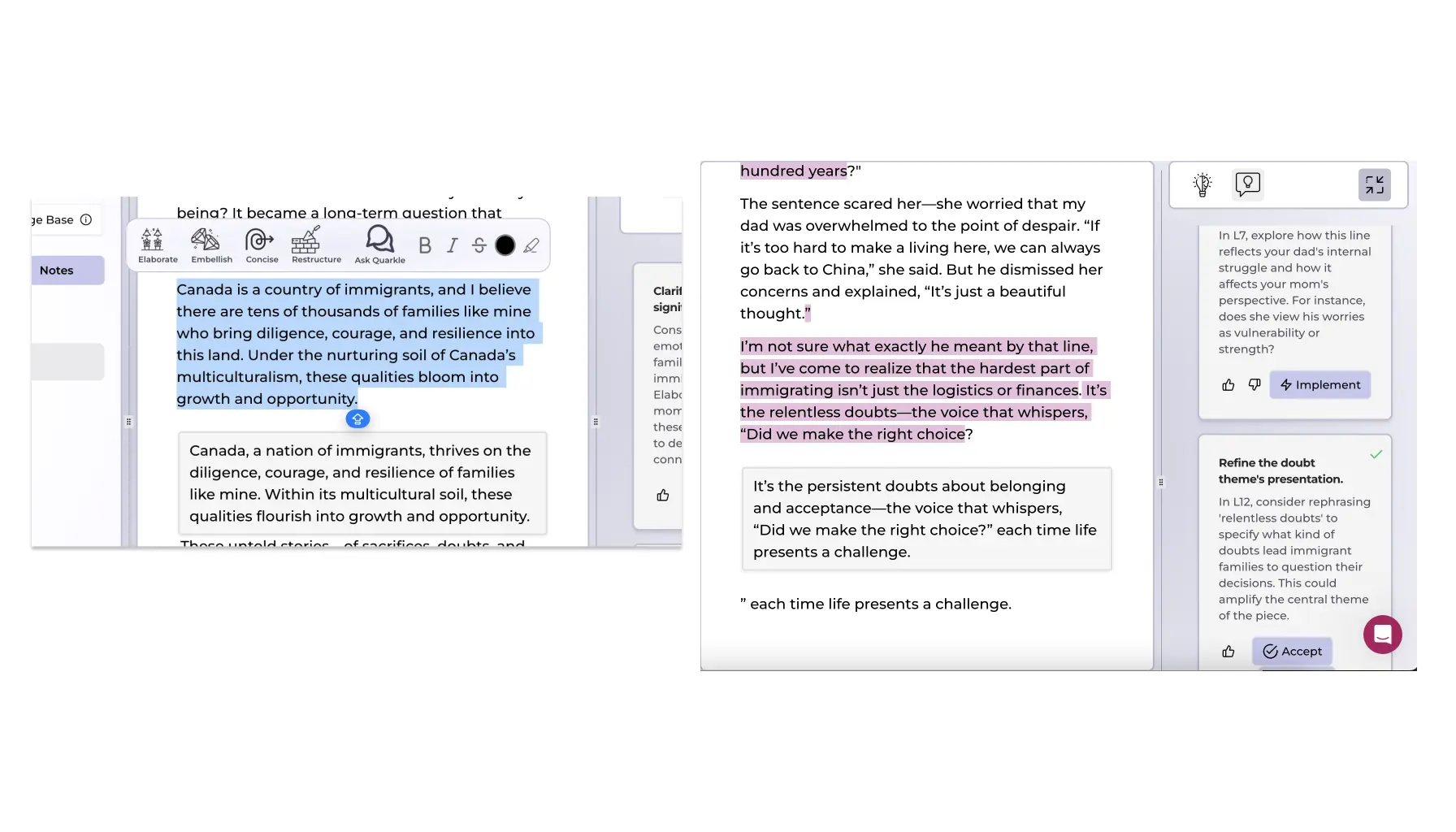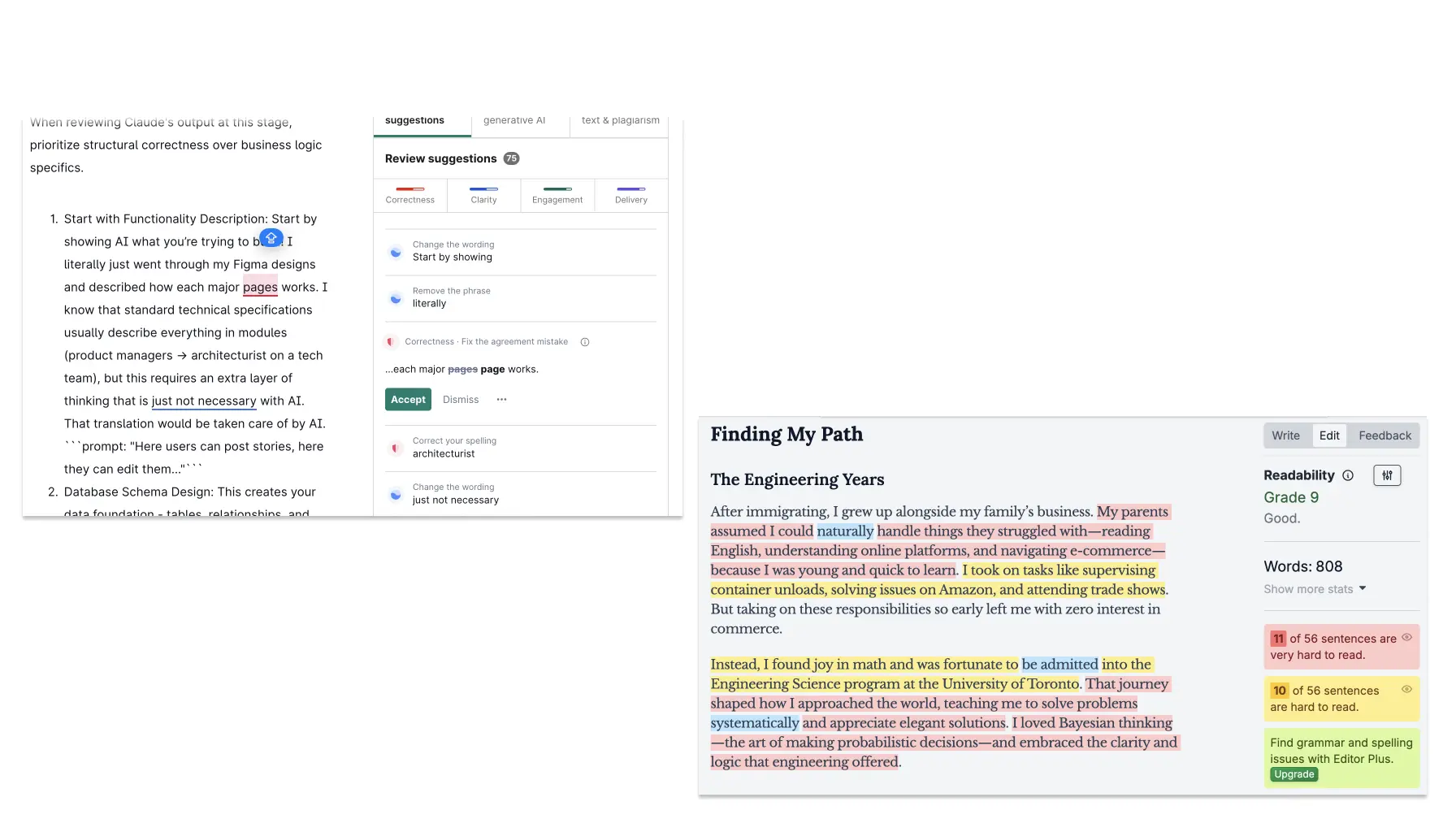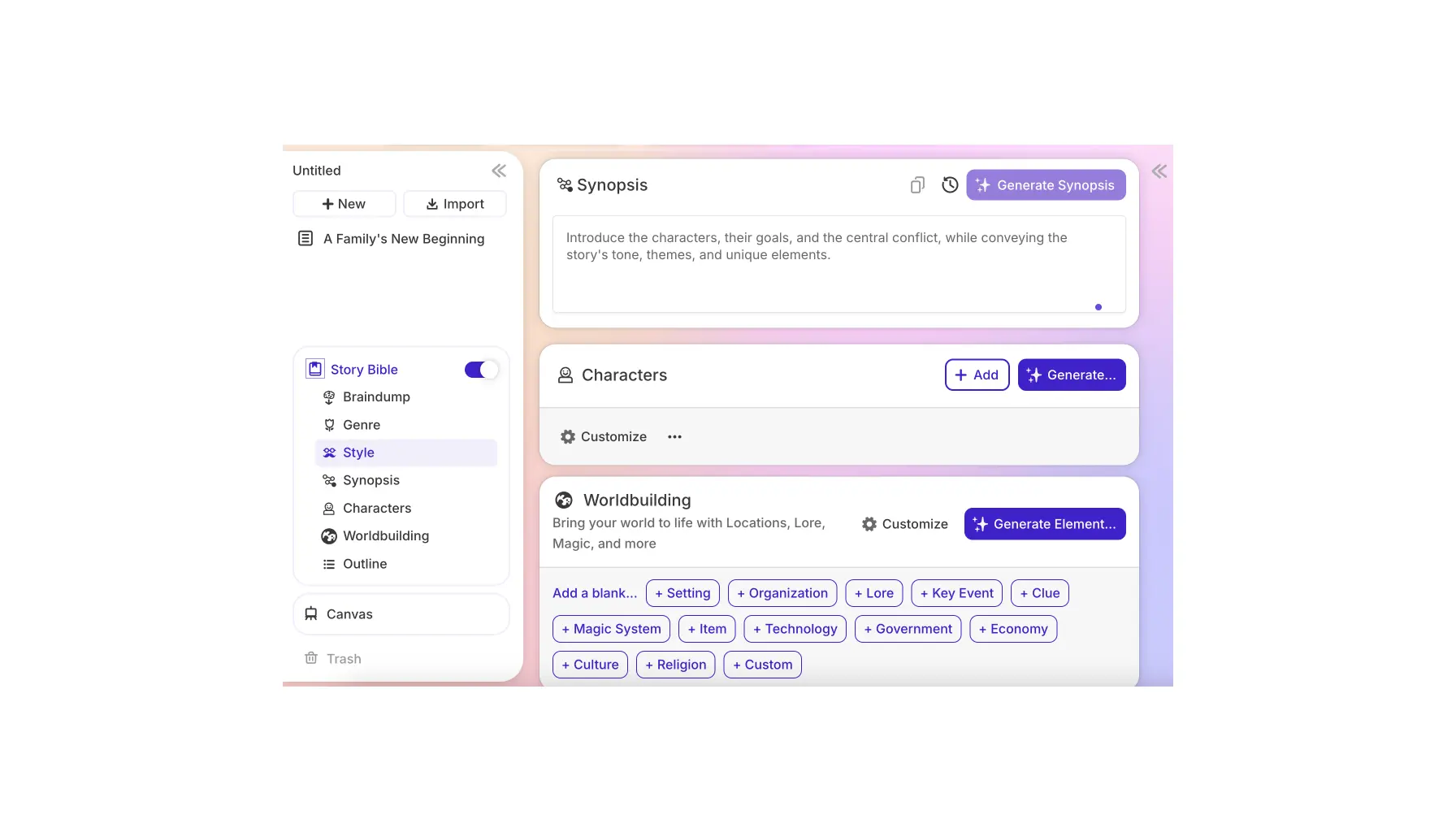8 Morden Tools that Help with Writing Memoir

Like many others exploring AI writing tools today, I’ve found myself fascinated by their potential for personal storytelling and memoir writing. Working in tech naturally led me to experiment with these emerging technologies, starting as professional curiosity before evolving into something more meaningful. As I tested various AI writing assistants, I was pleasantly surprised to find they could help overcome writer’s blocks while still allowing authentic expression in personal narratives. My journey of combining traditional journaling with AI-assisted writing has taught me that technology can enhance rather than replace the deeply personal process of crafting memoirs. Based on this experience, I’d like to share the modern tools I’ve found helpful for memoir writing and personal storytelling, as well as discuss some popular AI writing tools that might be less suitable for this intimate form of expression.
Most Useful Tools for Memoir Writing
iPhone’s Built-in Speech-to-Text Tool
When writing a memoir, your personal thoughts and memories are the true gems. The challenge lies in capturing these thoughts effectively and turning them into engaging narratives for your readers. While traditional notebooks remain valuable, modern speech-to-text technology has become an invaluable tool for this initial capture phase.
The speech-to-text functionality does more than just eliminate the physical barrier of typing. It creates a more natural way to express memories and ideas, helping writers maintain their train of thought without getting caught up in typing mechanics. This proves especially valuable during brainstorming sessions when ideas flow quickly, or when you want to capture a vivid memory before it fades. Speaking your story aloud often feels more natural than typing it, removing the pressure to craft "perfect" sentences and helping you maintain creative momentum.
I personally use the voice recording feature that comes with iPhone (available after iOS 18). While this works well for my needs, you’ll find numerous alternatives in the App Store, many offering free basic features.
Perplexity: AI Search for Quick Research
Perplexity serves as a free AI-powered search engine that streamlines the research process. Unlike traditional search engines that direct you to various websites, Perplexity synthesizes information from multiple sources and presents a comprehensive summary, while still providing source links for deeper investigation.
Thorough research forms the backbone of compelling memoir writing, offering:
Historical and cultural context that helps readers better understand your experiences
Clarity and accuracy in recounting past events
Rich details that might have faded from memory
Connections between personal experiences and broader historical moments
Here’s how research can enhance different aspects of your memoir:
Family History: Dive into genealogical records, family photographs, letters, and relatives’ accounts to uncover the rich tapestry of your family story. These sources often reveal fascinating details about ancestors, family dynamics, and pivotal events that shaped your narrative.
Historical Context: Ground your personal experiences within their larger historical framework. For instance, if your memoir touches on significant historical periods, understanding the social climate and cultural trends of that time adds authenticity to your storytelling.
For example, The author recalls growing up in Detroit during the 1967 riots but wants to ensure the depiction of events and atmosphere is accurate. He would research for "Detroit 1967 riots timeline and impact on local communities"
ChatGPT or Claude:
Writing a memoir or personal story is a deeply personal and creative process, but it also requires technical precision and storytelling finesse. AI tools like ChatGPT can serve as a valuable partner in refining your writing. Whether you’re tackling grammatical issues, improving clarity, or enhancing narrative depth. Below, I’ve outlined key areas where AI can assist, with practical examples of prompts you can use to guide the process.
For Grammar Check:
The first step in polishing your draft is ensuring it’s free from grammatical errors. While you could simply ask ChatGPT to proofread your article, its feedback can sometimes be overwhelming or include unnecessary nitpicks. To make the process more effective, it’s helpful to target the most significant issues first.
This approach lets you tackle the most problematic sentences early and iteratively refine your work until you’re confident in its grammatical accuracy. Here’s an example of prompt for focusing on the most critical grammar fixes:
Prompt Example:"Please provide the top 10 most obvious grammar issues in the following draft. For these sentences, please provide line-by-line fix suggestions."
For Clarity and Precision:
Once the grammar is in order, the next step is to refine your draft for clarity and precision. This ensures that every sentence conveys its intended meaning effectively and concisely. Clear writing eliminates ambiguity and helps readers connect with your story on a deeper level.
Improving clarity often requires a more nuanced approach than just checking grammar. It involves examining word choices, sentence structures, and transitions to ensure your ideas flow logically.
These prompt are fairly long, so I created a separate blog for them.
https://timeloom.ai/blog/chatgpt-prompts-for-proofreading
For writing improve idea:
Once your story is grammatically sound and clear, the next step is to elevate it into a compelling narrative that resonates emotionally with readers. This involves adding vibrancy, depth, and engagement through rich imagery, sensory details, and dynamic storytelling techniques.
AI tools can assist in brainstorming creative ideas, suggesting sensory descriptions, and helping you craft metaphors or similes that align with the themes of your story. These prompts are designed to help you transform a straightforward draft into a memorable and impactful narrative.
Since this topic is extensive, I’ve created a dedicated blog with detailed prompts for improving clarity and precision. You can find it here:
https://timeloom.ai/blog/chatgpt-prompts-for-proofreading
Quarkle AI: A Standout Tool for Writing Improvement
I found Quarkle AI to be very helpful for memoir writing, even though it wasn’t specifically designed for this purpose. What makes it stand out is its commenting system - it works like a thoughtful proofreader, suggesting ways to improve both readability and depth in your writing. This is exactly what you need when you have a draft ready and want to make it better.

The tool also has useful in-line editing features like elaborate, embellish, concise, and restructure. I personally get the most value from the "concise" function, since I tend to include too many details that sometimes distract from the main story.
Tools That May Not Serve Memoir Writers
Notion AI: Better Suited for Commercial Writing
While Notion AI excels at content expansion and tone adjustment for commercial writing, these features don’t translate well to memoir writing. In commercial copy, we often need to flesh out sections for completeness, and AI-generated content can serve this purpose adequately. However, memoir writing demands something different - every scene should stem from authentic experience and genuine emotion. The standardized tone adjustments that work well for business writing can actually diminish the personal voice that makes memoirs compelling.
Grammarly: Too Many Unnecessary Suggestions
Though Grammarly represented a significant improvement over basic word processor spell-checkers, its utility has diminished in the era of more sophisticated AI tools like ChatGPT. These days, I find its grammar suggestions often too prescriptive and sometimes disruptive to the natural flow of personal narrative.

Hemingway: Better for Business Than Biography
While Hemingway proves invaluable for crafting clear, concise business copy, its emphasis on short, simple sentences doesn’t always serve memoir writing well. Personal narratives sometimes require longer, more complex sentences to capture the nuanced layers of memory and emotion.
Sudowrite: Designed for Fiction, Not Memory
Sudowrite offers impressive capabilities for fiction writing, with AI features supporting character development, world-building, and plot generation. While it’s a revolutionary tool for creative fiction - one I’d gladly invest in alongside ChatGPT - it’s not optimized for the unique challenges of memoir writing.
The fundamental challenge in memoir writing isn’t world-building or character invention - it’s navigating the delicate balance between honesty and sensitivity when writing about real people and relationships. This challenge requires careful consideration of how to portray actual relationships while respecting both truth and privacy.
Unlike fiction, where characters and plot can be freely shaped to serve the story, memoirs demand a different kind of craftsmanship. They’re a journey of discovery where the narrative unfolds through the process of examining and understanding past experiences. The goal isn’t to create a perfectly structured plot, but to achieve emotional authenticity while making sense of personal history - both for the reader and the writer.

